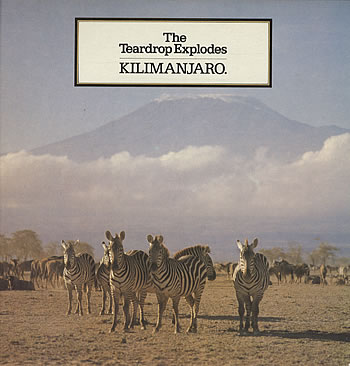The Arch-drude, His Copeness, Saint Julian, that hippie eccentric from the BBC: there are many identities of Julian Cope. His work continues to pour forth seasonally, from writing on the ever-brilliant Head Heritage site to his panoply of side projects which regularly gestate into releases ranging from Odinic chanting to proto-metal. He continues to attract a loyal and tribal following of fans, dissenters, amateur archeologists and ‘heads’ to his ever increasing array of books, CD releases and performances, and it would be just a willow wand’s width from the truth to say he is one of Britain’s more baffling yet most beloved Renaissance Men. He embodies the Fool – in the mythical sense – juggling both wisdom and neo-spiritual nonsense as he capers about remote hillocks, poking optimistically at the fabric of time, space and music.
However, back in 1979, he was yet to be any of these things. Back then, he was just Julian Cope from Liverpool Polytechnic: post-teen acid head, friend of pop-curmudgeon Ian McCulloch and pre-Wah! Pete Wylie, signed to Bill Drummond"s Zoo Records, and lead singer of emergent shambling Scouse-pop band The Teardrop Explodes. Having released both ‘Sleeping Gas’ and ‘Bouncing Babies’ to some North Western acclaim (a nod from Tony Wilson) and some national attention (a begrudging acknowledgement from the NME and alleged fear from nascent pop darlings U2 and Duran Duran), Cope and his lysergically-challenged bandmates headed for the Welsh hills to concoct a haphazard and unruly record filled with pop promise, but somehow never quite achieving the potential glory which had Vox and Le Bon worried. This, of course, might have had something to do with Cope and co’s minds achieving The Great Unravel on a daily basis – Cope"s memoir Head On recalls the band regularly riding to the studio on imaginary horses.
In fact, it’s no small wonder that in Killimanjaro, (including the technically post-album track and arguable Explodes zenith ‘Reward’), they managed to create such a precocious collection of shimmering pop. Killimanjaro has all the urgency of an ambitious first release, the unkempt charm of blatant talent, and the sound of supreme confidence wrestling with inexperience.
In the album’s lyrics we detect things going psychedelically skewiff for the Drude – meanings shrouded in vague metaphor, a hint of megalomania and concurrent paranoia in tracks like ‘Second Head’: "I know the banisters are leaking" becomes "Beware of false promises, You must be wary of people". Of course, the most obvious signpost is Cope’s own acid confessional ‘Went Crazy’, detailing an inability to manage a literal relationship with information, with social interaction: "And I looked all around, And went crazy".
The second CD on this re-release tells the not-particularly-hidden tale (Head On"s gospel according to Drude himself is a finest testament of that) of ‘Killimanjaro’s experiments and excesses, including unhinged live track ‘Bouncing Babies’ with Cope’s laughably ADD attempt at audience interaction. The Teardrop Exploded not with a bang but a whimper in 1982 after a patchy second album Wilder and the inevitable internal disputes: the band that drops together often stops together. Cope retreated to a small dark room to cocoon himself around his obsessions and ingestions, triumphant with the surprisingly cogent World Shut Your Mouth. And indeed, for a short while, it did.


